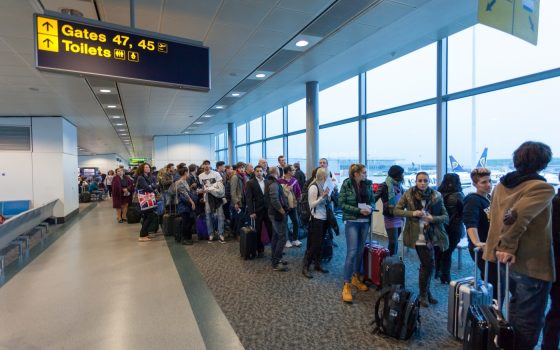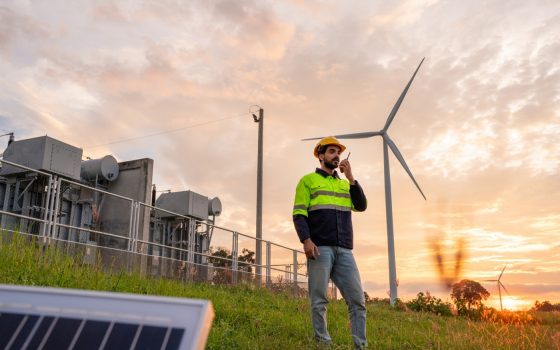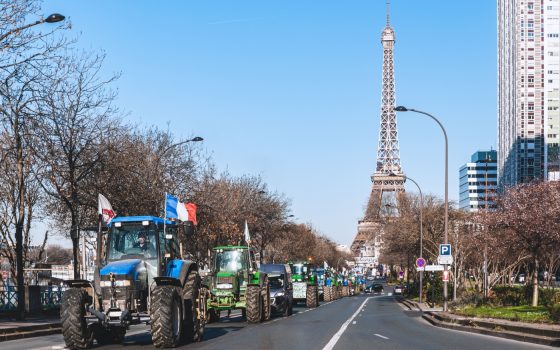Sunak’s spring statement will reflect his priorities, not our ability to pay
This is an opportunity for government to show that it cares about promoting peace, improving living standards and tackling climate change
18 March 2022
As we approach Rishi Sunak’s spring statement, the suffering caused by the war in Ukraine is at the forefront of all of our minds and it is likely the chancellor will announce greater military spending as a result. At the same time, declining living standards and climate change are causing hardship across the world, and failure to act on them now will only exacerbate any paint felt. To fund required spending, the chancellor has the option to use extra tax revenues, borrow more or make cuts to spending elsewhere to free up funds. What he chooses will reflect Sunak’s priorities, not economic fundamentals.
Despite portraying a tight public purse, the chancellor has many options to raise extra funds. Firstly, the Resolution Foundation estimate that by April the government will have raised an extra £30bn in tax revenue since its last forecast. This could be used to reduce borrowing, but equally the planned borrowing could still take place and the funds could be used, for example, to match US aid to Ukraine and support to refugees (£10bn), retrofit millions of homes (£12bn) and re-instate the £20 uplift to universal credit (£6bn), with money to spare. As this borrowing was already planned, it would be very difficult for the chancellor to argue we can’t afford it.
Secondly, the prospect of borrowing more isn’t so scary. While interest rates on public debt are rising, they are still relatively low by historical standards. This is partly due to quantitative easing, as around a third of government debt is now owned by the Bank of England and is therefore effectively financed at the base rate. This reduces Treasury costs on much of its borrowing and will do so until the base rate is firmly above 2% or the Bank sells off all its government debt. When considering the savings from quantitative easing, government interest costs are just under 2% of GDP or around 5% of tax revenues. These numbers are still lower than in 2018 and virtually all years since the second world war and indicate the favourable conditions we have to borrow money. Therefore, the option to borrow more is certainly plausible and choosing not to is a political choice, not one based on economic necessity.
Many of Europe’s stereotypically ‘frugal’ countries have recently demonstrated that money can be found when they deem it necessary. For example, Germany, Sweden and Denmark have all pledged to increase their military spending to 2% of GDP without changes to budgets elsewhere. With small falls in the cost of borrowing due to investors flowing to safer government bonds, they have committed to this extra spending without significant changes to economic fundamentals.
We don’t tend to worry about how emergency policies in war or recessions are funded as the issue at hand of securing peace and protecting economic stability is deemed more important than how to fund the response. If considered important enough, more funds could easily be raised to tackle climate change or reverse declining living standards without making cuts elsewhere. Instead of seeing the policies we spend on in competition with each other, we should recognise all are necessary to promote peace, protect peoples’ livelihoods, the country’s economy, and the world’s climate.
The war in Ukraine does not make fighting climate change or improving living standards any less important, if anything it makes them more so. Sustainable green energy produced domestically will lessen our reliance on imports and the impact war could have on living standards in the future. Furthermore, access to oil and clean water are some of the motivations behind Putin’s invasion. A future without reliance on fossil fuels could calm antagonistic pressures and prevent large transfers of money to brutal regimes.
Recessions and the war in Ukraine demand attention and it’s clear governments can and will step up to these issues when needed, without worrying about how they will pay for it. The fact that this doesn’t happen for spending on green investments or to improve living standards is evidence that the government thinks not being on track to meet net zero and tens of millions being unable to afford an acceptable standard of living are not emergencies that need changing. The living standards crisis and climate change are already a desperate situation for many. Climate change and the long-lasting effects of poverty, particularly child poverty, have the potential to cause even larger crises in the future. We shouldn’t just spend big when crises hit, but to prevent them too.
At the spring statement, Rishi Sunak will have the power to announce measures that aid Ukraine, combat climate change, and improve living standards. If any of these are missing, it won’t be a case of not being able to afford it but a case of not deeming those issues important. In a worst-case scenario, Sunak could cut back budgets elsewhere to ‘provide’ funds for military investment, and this would reflect very problematic priorities. The spring statement is an opportunity for the government to show that it cares about promoting peace, improving living standards and building an environmentally sustainable UK. All are possible and affordable.
Image: Number 10 (CC BY-NC-ND 2.0)






